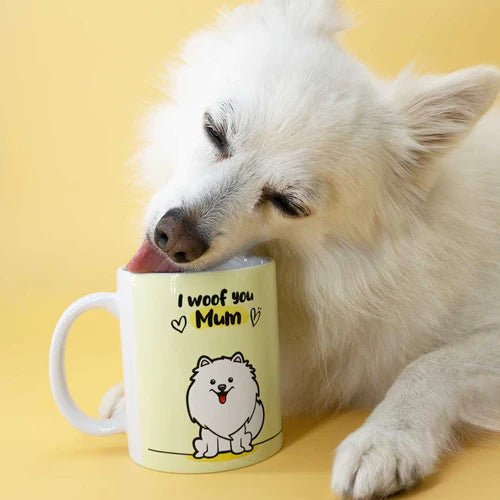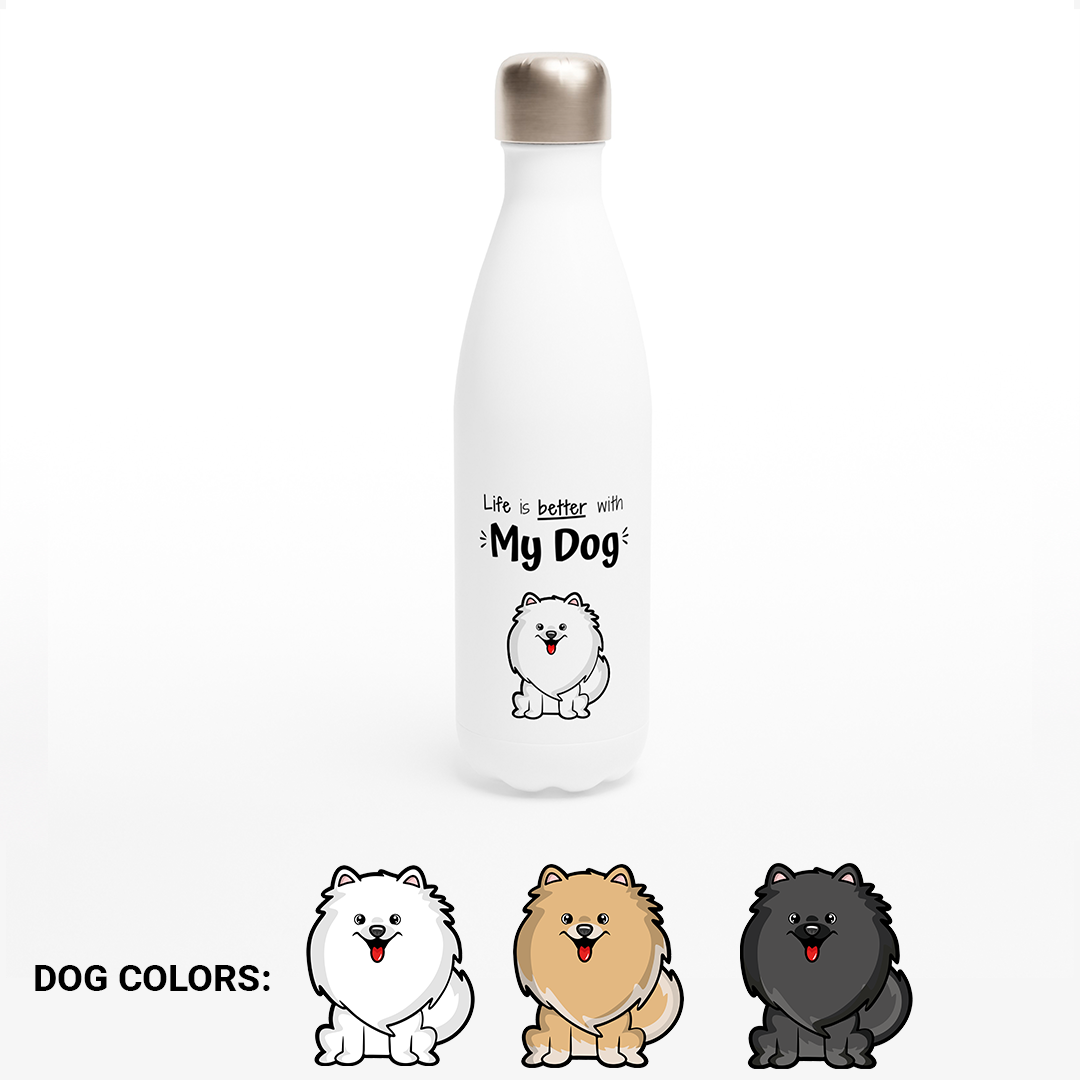The importance of hydration in pets

Hydration is of vital importance for both dogs and cats, just as it is for humans. Water is an essential nutrient that plays a critical role in maintaining the health and well-being of living organisms.
First and foremost, it's important to note that although having dissimilar organisms, the process of sweating in animals is completely different from ours.
Dogs primarily regulate their body temperature through panting rather than sweating like humans do. Panting allows dogs to release heat by evaporating moisture from their respiratory system, including the tongue and the lining of the lungs. This evaporative cooling helps to dissipate excess heat from their bodies.
While dogs do have sweat glands, they are not as numerous or widespread as those found in humans, and they are not as effective at cooling. Dogs have sweat glands located in their paw pads, but these glands play a minor role in temperature regulation compared to panting. Additionally, dogs may also release some sweat through their noses.
Cats also have sweat glands on their paw pads, and licking their paws can help them cool down by spreading moisture on their fur, which then evaporates and cools the skin.
Cats are meticulous groomers, and this behavior helps them regulate body temperature. When a cat licks its fur, saliva evaporates, which can help cool down the cat's body in warm weather.

Why is it important to keep pets hydrated?
Water participates in the proper development of a multitude of functions, here are some of the most important:
- Regulation of body temperature: Dogs and cats regulate their body temperature through respiration and the evaporation of water through the mouth and skin. Water helps maintain a suitable body temperature and prevents overheating.
- Proper organ function: Water is necessary for the proper functioning of vital organs, including the heart, kidneys, liver, and lungs. It contributes to the elimination of toxins and waste through urine and feces.
- Hydration of tissues and joints: Water is a principal component of cells, tissues, and joints. Proper hydration helps maintain flexibility and optimal joint function, preventing stiffness and deterioration.
- Digestion and nutrient absorption: Adequate hydration is fundamental for the digestion and absorption of nutrients from food. Water helps break down food in the digestive system and facilitates the absorption of nutrients into the bloodstream.
- Renal health: Kidneys play a crucial role in removing waste and toxins from the body. Proper water intake helps maintain optimal kidney function, prevents the formation of kidney stones, and helps prevent kidney disease.
- Prevention of dehydration: Dehydration can be dangerous and potentially fatal for living organisms. Dogs and cats can become dehydrated due to exposure to heat, intense physical activity, illnesses, vomiting, or diarrhoea. Proper hydration helps prevent dehydration and its complications.
How much water should they drink?
As for the amount of water they drink and need, it varies greatly depending on the season, temperature, physical activity they engage in, and the type of food they eat. As a general rule, they should always have fresh and clean water available to regulate their hydration status themselves. A very rough guide for a healthy dog or cat would be that they should drink approximately between 30 and 100 ml of water per kilogram of body weight per day.
Sometimes certain pathologies or problems may cause changes in the hydration habits of your furry friends, such as Polydipsia, a massive increase in the amount of water ingested, or Adipsia, a decrease in water consumption. If you ever notice any dramatic change in their behavior regarding hydration, consult your veterinarian.
It's worth mentioning that when a furry friend switches from a dry diet, such as kibble, to a wet natural diet, such as BARF, we will naturally observe a significant decrease in water intake. This is completely normal because wet food has a high water content, which helps with hydration through feeding. This is a very beneficial aspect because they don't rely on the sensation of thirst to hydrate, and in cases like with cats, it's extremely useful because they are more selective with the water they drink, and it's a way to hydrate them without them directly drinking water.

Signs of dehydration in dogs:
The symptoms of dehydration in dogs and cats can vary depending on the degree of dehydration and the overall health of the animal. Here are some common signs of dehydration you can observe:
- Lethargy: The dog may be more inactive than usual and show a lack of energy.
- Dry gums: The gums may appear dry and sticky instead of moist and pink. Press your finger against the gum, and if you notice that it takes time to return to its normal pink color, it's dehydrated.
- Sunken eyes: The eyes may look sunken in their sockets and dull.
- Lack of skin elasticity: If you lift the skin on the dog's neck and it doesn't quickly return to its place, it could indicate dehydration.
- Rapid breathing: You may notice that the dog is breathing faster than normal.
- Decreased urine: If the dog is not urinating as much as usual or if the urine is dark in color, it may be a sign of dehydration.
- Constipation: the body seeks to absorb water from wherever it can, resulting in further dehydrating the stools.
- Reduced salivation: Less production of saliva than normal.
- Loss of appetite: It may show a lack of interest in eating or drinking.
- Seeking water source: Cats may show unusual behaviors, such as seeking places with water, such as the sink or bathtub.
It's important to note that some of these symptoms may also be caused by other medical conditions. Therefore, it's always advisable to consult a veterinarian if you suspect that your dog or cat is dehydrated or if it shows any changes in its behavior or health status. Dehydration in animals can be potentially serious and requires proper medical attention.
How can I increate water intake for my dog or cat?
Ensuring that your dog or cat stays well hydrated is essential for their overall health and well-being. Here are some tips to help you keep them hydrated:
-
Provide Access to Fresh Water: Always make sure your dog/cat has access to clean, fresh water throughout the day. Keep their water bowl filled and change the water regularly to prevent contamination.
-
Monitor Water Intake: Pay attention to how much water your dog/cat drinks on a typical day. If you notice any significant changes in their drinking habits, it could be a sign of health issues, so consult with your veterinarian.
-
Offer Water During Exercise: During walks or outdoor activities, bring a water bottle for your dog or cat to drink. Dogs can become dehydrated quickly, especially in hot weather or during vigorous exercise.
-
Use a Suitable Water Bowl: Choose a water bowl that is the right size and material for your dog or cat. Make sure it's stable and won't easily tip over. Some pets prefer elevated bowls, while others may prefer ceramic or stainless steel over plastic.
-
Encourage Drinking: Some pets may need encouragement to drink water, especially if they are not used to drinking much. You can try adding a little water to their food, using a water fountain, or offering ice cubes as a treat.
-
Monitor Temperature: In hot weather, ensure your dog or cat has access to shade and cool areas. Avoid exercising them during the hottest parts of the day, and always provide plenty of water to prevent overheating.
-
Consider Wet Food: Wet dog food contains more moisture than dry kibble, which can help contribute to your pet's overall hydration. Mixing wet food with dry food or adding water to dry food can also increase their water intake.
-
Regular Vet Check-ups: Regular veterinary check-ups can help identify any health issues that may affect your pet's hydration levels. Your vet can also provide guidance on proper hydration for your pet's specific needs.







